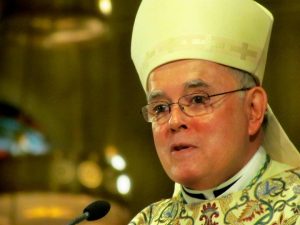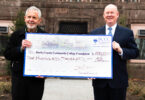During a time where the Archdiocese of Philadelphia is consolidating churches and trying to draw in more parishioners, new guidelines issued by Archbishop Charles Chaput are receiving some controversy.
The new guidelines that went into effect this month outline that Catholics who are remarried, civilly divorced, live together but are unmarried, are in gay or in same-sex relationships should be barred from certain church activities. For good measure, the church says Catholics in some of the situations listed above should refrain from “sexual intimacy.”
The guideline document lays out that those who are unmarried should not have sex, civilly divorced parishioners should live with members of the opposite sex like “brother and sister” and that gay Catholics should “not hold positions of responsibility in a parish, nor should they carry out any liturgical ministry or function.”
The document calls for Catholic officials to be sensitive in dealing with parishioners with “imperfect grasp of Christian teaching on marriage and family life, who may not be living in accord with Catholic belief, and yet desire to be more fully integrated into Church life, including the Sacraments of Penance and Eucharist.”
The guidelines released by the church are part of a larger outline put together and approved by Pope Francis.
From the Associated Press:
The Rev. Thomas Reese, senior analyst for the National Catholic Reporter, said Wednesday that he thinks Francis is empowering bishops to make their own judgment calls on how church teaching should be applied in their diocese.
“Somebody in the diocese next door could release a letter that says something totally different,” Reese said.
Philadelphia Mayor Jim Kenney said the guidelines put out by Chaput are “not Christian.”
“Wow, as a divorced Catholic who tried everything to save an abusive marriage, not to mention living with a spouse guilty of frequent infidelity, this really hurts. I love my religion, but this makes me feel so inadequate. And I’m certainly not inadequate,” said Joanne Ercoli of New Jersey.
“This is a hard teaching for many,” the document states.









